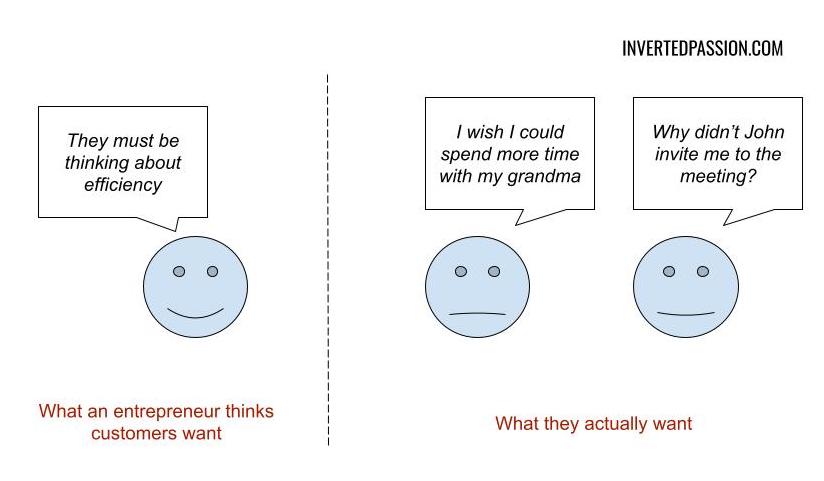Mind projection fallacy happens when we assume that most other people are like us. It’s an error to assume that they have similar desires and fears towards things as we do.

Normally, this is not such a big issue. The worst that can happen in most cases is perhaps an exchange of incredulous looks (for example, when a cricket fan encounters a non-cricket who doesn’t know who Sachin Tendulkar is).
But for entrepreneurs, the mind projection fallacy is dangerous because it means they can end up working on the wrong problem.
As you can imagine, entrepreneurs are very different from non-entrepreneurs. They take more risk, have an unstoppable drive, and work hard to achieve what they want. They’re also early adopters of new products and services.
However, most people aren’t like entrepreneurs. So, it’s a mistake when an entrepreneur takes his drives as a norm for how all consumers behave. They assume that, like them, most people are driven, like to try new products and want growth.
Mind projection fallacy happens because we have imperfect data about the world. When we fill in the gaps about someone else, we use our behavior to predict how they would behave. That’s fallacious because they might not have the same worldview or value system as you, the entrepreneur, has.
If you ever said, “I never understand why people buy torn jeans”, you’ve acknowledged the limitations of mind projection. People are very different from each other. Managers are not like executives. Teenagers in the US are not like teenagers in Canada. People who have done PhDs are not like those who have dropped out.
A practical tip on addressing mind projection fallacy: assume you’re not a model consumer. As an entrepreneur, you most likely are an outlier, not the norm.
Start by assuming you know nothing about target customers. Then start relying on hard, cold data to knit together your target customer’s profile. Enrich the profile as much as you can. How do they decide? What’s their budget? What are their goals? What excites them? What do they fear? Understand their desires intimately, and acknowledge that your customers are likely nothing like you.
Remember: overcoming the mind projection fallacy is difficult, but it’s the only way you’ll form a less biased view about your customers.
This essay is part of my book on mental models for startup founders.
Join 150k+ followers
Follow @paraschopra